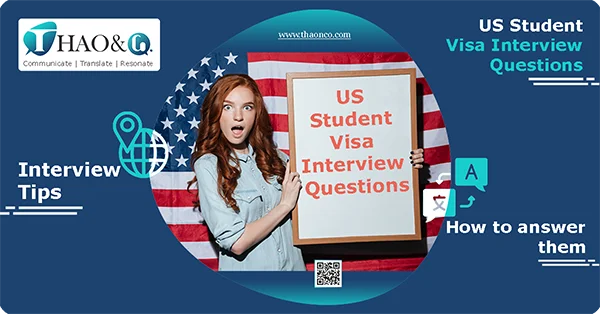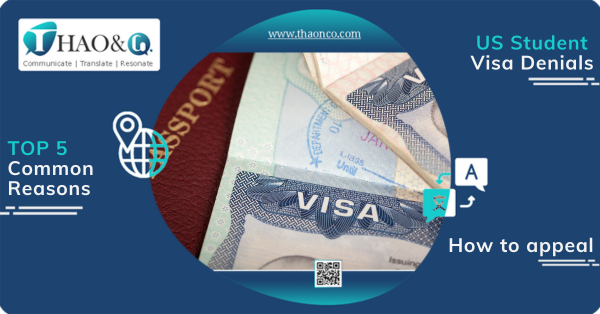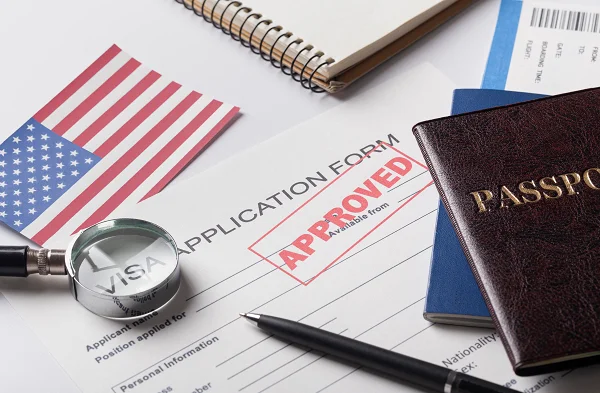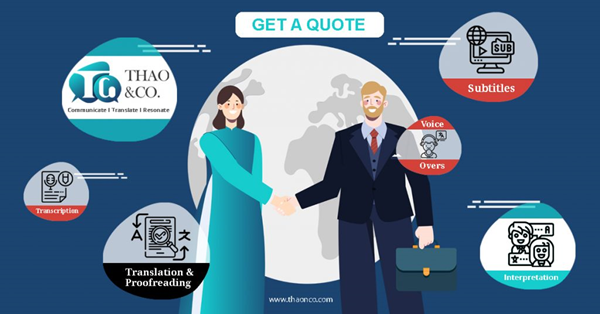Dreaming of studying in the US? A US student visa is your ticket to that dream. But visas can be tricky, and applications for US student visas are known for being thorough. One step that can cause applicants to stumble is the face-to-face interview with a consular officer. Ready to turn your US study dreams into reality? Armed with this knowledge of the top 5 reasons for US Student Visa rejection, you’ll be well-equipped to navigate the US student visa application process.
Here are 5 mistakes that can put your US student visa application at risk:
Before applying for a US student visa, make sure you are fully informed about the entire process to avoid missing important documents.
It is essential to provide the following documents when applying for US student visas:
Required documents:
Supporting documents:
While the required documents are essential, including additional papers like birth certificates, household registration books, strong academic transcripts, or valid English proficiency test scores can strengthen your application.
Due to the potential length of US student visa processing times, submitting your application at least 3 months before your program start date is crucial.

The in-person interview at the US Consulate is a critical part of the student visa application process. Your responses should be consistent with the information you provided in your DS-160 form to avoid any discrepancies that might raise red flags.
Inconsistency between your application and interview can be a major red flag for visa officers, leading to rejection. This can happen unintentionally due to mistakes when reporting your travel history, work experience, financial situation (like salary range), or even basic biographical details.
It’s crucial to ensure all the information you provide on your DS-160 form matches exactly what you’ll say in your interview. This consistency demonstrates careful preparation and strengthens your application.
To study in the US, international students need to demonstrate sufficient financial resources to cover their living expenses and tuition fees.
This financial proof is a crucial part of your visa application, as it shows the US Consulate you have a solid plan to support yourself during your studies. This alleviates concerns about your reliance on unauthorized work to cover your expenses.
International undergraduate students will typically need to demonstrate their financial sponsor’s ability to cover educational expenses.
For graduate students and other non-traditional applicants, demonstrating your financial resources is even more critical. This may involve evidence of your employment income (paystubs or tax documents), sufficient funds in your bank accounts, ownership of property (with a certificate of land use rights), or a business license if you are self-employed.
Beyond financial resources, a well-developed study plan strengthens an international student’s visa application by demonstrating their academic goals and commitment to their chosen field of study in the US.
A common pitfall for applicants is crafting a generic study plan that lacks details specific to their chosen program and university. Skimming over this step can also be one of the reasons for US Student Visa rejection.
Thorough research into your chosen major and the specific program you’ll be attending is essential. A strong study plan is your chance to showcase your passion for your chosen major.
By outlining specific courses that align with your academic goals and researching faculty whose expertise complements your interests, you can demonstrate a genuine and well-informed decision to pursue your studies in the US.
• Interview jitters can lead to stumbles. Under pressure, even well-prepared applicants might give answers that seem irrelevant or lack focus.
This pressure can lead to rushed responses that are either too brief or overly detailed, making it difficult for the visa officer to assess your qualifications and intentions.
If you feel flustered, it’s perfectly acceptable to politely ask the visa officer for clarification on a question. Doing so with a professional and honest demeanor demonstrates your composure and desire to provide accurate information.
• Uncertain communication can raise red flags. Hesitant speech, inconsistencies with your application, or difficulty expressing your ideas clearly can cast doubt on your preparedness or intentions.
Similarly, limited foreign language skills or a lack of engagement with the interviewer might hinder clear communication.
Pre-interview preparation is key. Brush up on your English conversation skills, practice answering common interview questions, and visualize yourself confidently presenting your plans to the visa officer.
Staying calm and collected during the interview will allow you to clearly articulate your goals and make a positive impression.
• Inappropriate clothes: wearing complicated and tight clothes might cause inconvenience and discomfort. Project professionalism through your attire.
Neat and conservative clothing, such as a business suit, dress pants or skirt with a blouse or button-down shirt, makes a positive impression.
Avoid overly casual attire or anything too revealing or tight-fitting. The goal is to feel comfortable and confident while demonstrating respect for the interview process.
• Confidence goes a long way. Maintain good posture, make eye contact with the interviewer, and speak clearly and concisely.
Consular officers assess several factors during your interview, including your fluency in English, the clarity and confidence of your speech, and the accuracy of the information you provide. This assessment plays a major role in their decision to approve or deny your US student visa application.
In conclusion, by taking steps to ensure clear and confident communication during your interview, you can significantly improve your chances of US student visa approval.
Thorough preparation, practicing responses, and maintaining a calm demeanor will empower you to effectively present your goals and impress the visa officer.

Some tips to lower your risk of being rejected for a US student visa:
The foundation of a successful US student visa application is submitting all the required documents accurately and completely.
To strengthen their application, international students should ensure they have collected all the necessary study-related documents from their home country. This includes academic transcripts, diplomas, and any required standardized test scores like the IELTS or TOEFL iBT.
Don’t forget to bring essential documents to your interview. This includes your original application documents, the interview invitation letter, and your acceptance letter from the US school you’ll be attending.
If any of your documents are not in English, you’ll need to have them translated and certified by a professional translation company. For academic transcripts in a grading system not familiar to US institutions, consider requesting a conversion to the US GPA scale.
Visa officers will likely ask questions to assess the legitimacy of your visit to the US. To strengthen their applications, international students should demonstrate a strong alignment between their chosen major, their academic abilities, and the specific program they’ll be attending at a US school.
During your interview, demonstrate your in-depth knowledge of your chosen major by discussing specific courses, faculty research, or career paths. Articulate your future goals, including how your US education will prepare you for a successful career back in your home country.
Highlighting your genuine enthusiasm for learning in a global environment can strengthen your application. Expressing your desire for self-development through a US education demonstrates a commitment to your academic journey and a well-rounded perspective.
Strong English language proficiency is essential for success in a US academic program. Ensure you have the required standardized test scores, like the TOEFL iBT or IELTS, readily available to present at your interview.
Strong financial resources are a crucial element of a successful US student visa application. Showcasing your ability to cover US education costs is a critical part of the visa application process.
Accuracy and clarity are key when presenting your financial situation for a US student visa. Ensure all financial documents are in English or accompanied by certified translations.
Some papers can serve this purpose:
International undergraduate students will typically need to demonstrate their financial sponsor’s ability to cover educational expenses. To strengthen your financial documentation, include evidence of the estimated costs associated with your US education.
Here’s how you can prepare for a successful US student visa interview:

Unsuccessful US student Vvsa application? Here’s what to do next:
While consular officers don’t always provide detailed explanations for visa denials, there are steps you can take to move forward: Carefully re-examine your application documents, the DS-160 form, and your interview performance.
Consider areas where you may have fallen short, such as incomplete documentation, unclear explanations of your study plans, or inconsistencies in your answers.
If you had booked flights, housing, or other travel arrangements in advance, contact the service providers as soon as possible to see if you can cancel and recoup any deposits.
A US student visa denial can be discouraging, but it’s an opportunity to improve your application for a future attempt. Provide even stronger evidence of your ability to cover all educational expenses.
Develop a more detailed and compelling study plan that clearly outlines your academic goals, chosen program alignment with your career aspirations, and how a US education specifically benefits your future.
Highlight your academic achievements, relevant skills, and language proficiency through transcripts, certificates, awards, or internship experiences.
There’s no mandatory waiting period to reapply for a US student visa after a denial. However, it’s crucial to address the reasons behind the initial rejection before submitting a new application.
Avoid making significant changes to the information presented in your documents or interview answers after a denial.
Inconsistencies can raise doubts about the authenticity of your application and cast suspicion on your motives. Thorough preparation is the key to a successful US student visa interview.
It is also advisable to translate and certify all non-English documents as required. Remember, even a small detail can make a positive impression on the visa officer.
By demonstrating thorough preparation, a clear study plan, and a genuine desire to learn in the US, you can significantly increase your chances of a successful US student visa application.

Thao & Co. is your trusted partner for high-quality certified translations that ensure your visa application is smooth and successful. Our team of experienced linguists is skilled in translating a wide range of documents for visa purposes, and we stay up-to-date on the latest requirements.
Here’s what sets Thao & Co. apart:
Don’t settle for anything less than the best for your visa application. Partner with Thao & Co. and experience the difference exceptional translation and streamlined service can make.
Visit our Get A Quote page today for a free consultation and unlock the door to your educational dreams in the US!